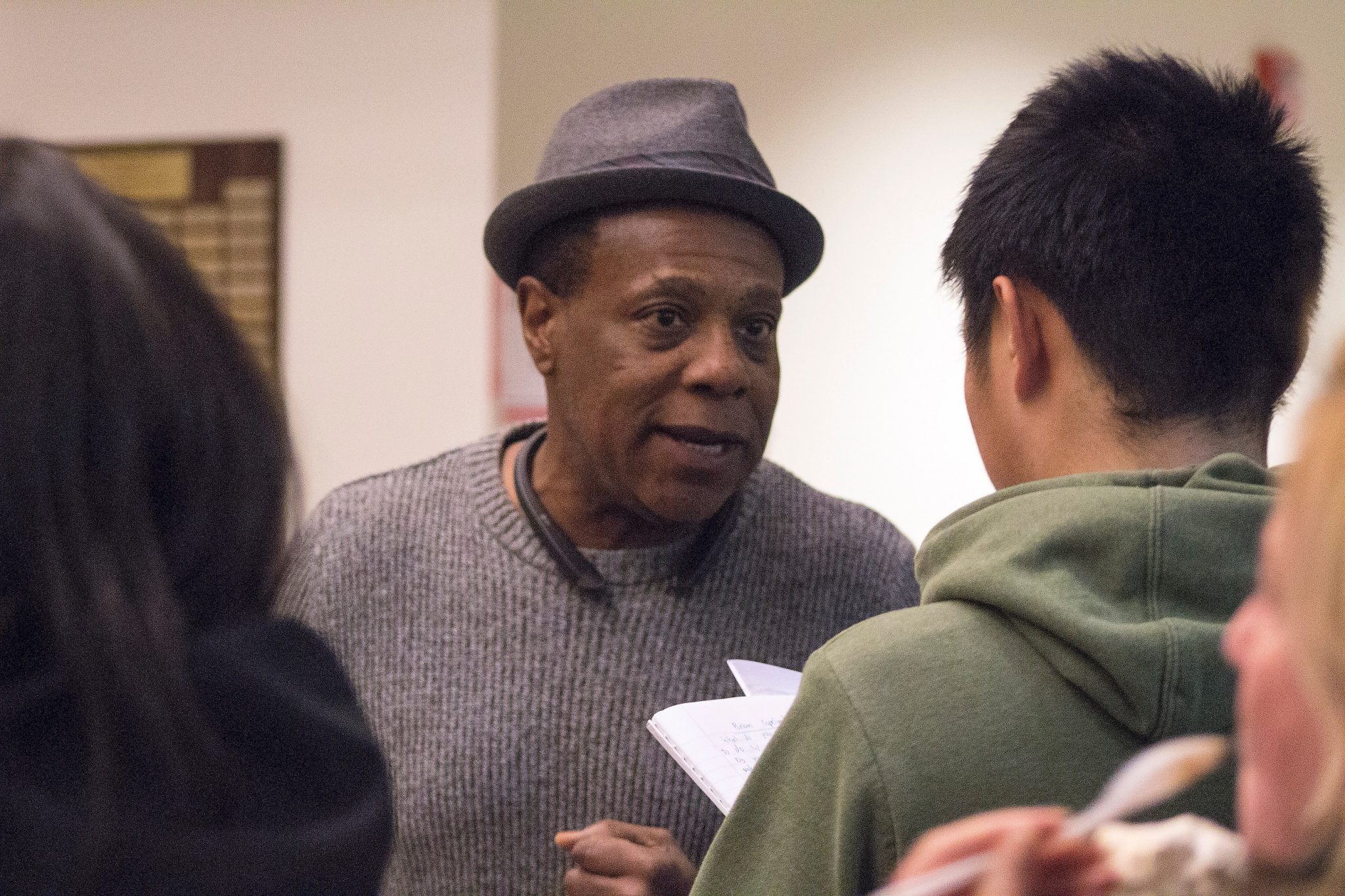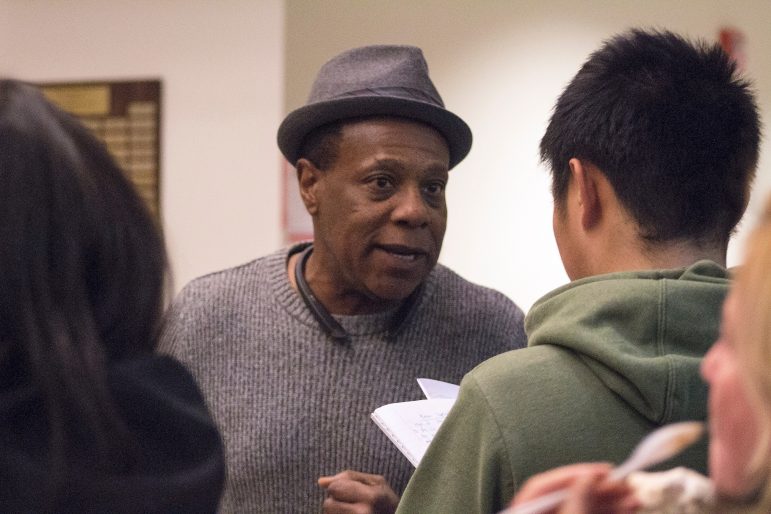

Performing a play about his experience with depression, actor, comedian and talk show host Brian Copeland came to the Aragon theater on March 1 to discuss mental illness. The play focused on Copeland’s experiences during the waiting time when he sought to purchase a gun, which he intended to use to take his own life, and how that time ultimately changed his decision.
Copeland’s play, “The Waiting Period,” refers to the legal mandatory 10-day waiting period between purchasing a gun and picking it up. The play was a one-man show, starring Copeland as all the characters who influenced his decision to decide not to use the gun.
The play began with Copeland standing near the left of the stage, miming his entrance and subsequent purchase of the gun. The subsequent moments in the shop are tense for Copeland, but normal for the gun salesmen, who are unaware of Copeland’s reason for purchasing the gun.
“If everything goes the way I think it will, I think I’ll only need one bullet,” Copeland said.
He then portrayed the salesmen as confused, but dismissive, and the order went through. However, Copeland could not pick up the gun that day, needing to first sit out the waiting period.
Then, Copeland told the story of his experiences during that period, making lighthearted comments about it while also intertwining it with warning. He talked of many common symptoms of depression — fatigue, irritability, loss of appetite and hopelessness — in an easily-understandable and visible way. He used phone conversations, accounts by other people and inner monologue to convey the difficulty behind dealing with and getting through depression.
“[Many with depression] are ashamed of having it, and that’s another message from the show, that it’s not your fault”
Through his play, Copeland aimed to push a message out to those who suffered or are suffering from depression.
“What I said at the end of the show is to tell somebody if you’re struggling, just tell somebody,” Copeland said. “If somebody decides to commit suicide, and it looks like it comes out of left field and no one had any idea, then people do what I call an emotional autopsy. They look back on the victim’s actions and realize they had been ‘telling’ people all along. They didn’t tell you, but the signs are there.”
A reason that communication does not always occur is because depression is not a widely-understood disease. According to Copeland, depression is a heavily-stigmatized disease in society, and many people are afraid of admitting they have it. Those who do not admit that they have it cannot get help, which is one of the causes of the rising suicide rates in America.
“The thing is, this disease is not talked about that much because it is stigmatized. It is the last stigmatized disease,” he said. “[Many with depression] are ashamed of having it, and that’s another message from the show, that it’s not your fault. Like, if you have cancer, you wouldn’t be embarrassed to tell people. Because people don’t even realize it is a disease, sometimes they have the, ‘Oh, come on, snap out of it, Sunshine!’ type of reaction.”
Copeland also makes the point that, while his story took place a decade ago where facilities for mental illnesses were underdeveloped, facilities are still not developed enough to the degree that is necessary.
“[Depression treatments are] better now than 10, 20 years ago,” he said. “We are finally starting to take it seriously, but not in a way we need to. I mean, look at the debate we are having about guns and mental illness. And the fact of the matter is that this is not being taken seriously in the way it should be taken seriously.”
